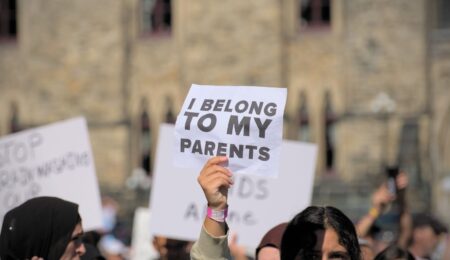Should we become more mindful of our political speech?
Eric Wilkinson | Fulcrum Contributor
TWO DAYS AFTER the fatal shooting at the Parti Québécois’ election-night celebration in Montreal, Peter Graefe, a professor at McMaster University, declared the incident “akin to the Norway massacre of 2011, fuelled by some angry electoral rhetoric blown out of proportion.” While Quebec is certainly no stranger to political violence, Professor Graefe’s comment linking the disturbing Norwegian events to our own country’s serves as a perfect example of the recent climate of Canada’s political discourse.
Exaggerated and hyperbolic rhetoric have always been a part of politics, but our political discourse looks relatively tame when compared to our southern neighbours. The United States seems to have suffered from a poisonous political landscape that has divided the country to the core. Such division has undoubtedly contributed to tragedies stateside, such as the Gabrielle Giffords shooting in Arizona. The question then becomes whether these political acts of violence committed by deranged individuals are truly the result of an aggressive political rhetoric. And if they are, what can be done to prevent them?
It’s no secret that political issues tend to evoke passionate sentiments. Politics is an emotionally charged field, and many issues strike at the very heart of who we are. For some psychologically disturbed outliers in society, passionate responses can give way to violent action. This was the case in the assassination of doctor George Tiller by militant anti-abortion and anti-government advocate Scott Roeder. Similarly, gay rights activist Floyd Lee Corkins waltzed into the Family Research Council in Washington, D.C. last month and declared “I don’t like your politics” before opening fire. In both of these cases, interest groups and political commentators were accused of fanning the flames and unleashing a fire.
They may have angered some, but it’s difficult to hold politicians, interest groups, or media personalities responsible for the visceral actions of society’s worst. No solid research has yet confirmed a connection between contemporary political rhetoric and violence, instead only pointing to a correlation in certain cases. And as any first-year student is quick to learn, correlation is not causation.
Regardless of political finger-pointing or posturing, the events that transpired in Montreal are a tragedy. No matter how careful we are to tone down our rhetoric or find common ground in the wake of a crisis, there will always be individuals whose motivations we cannot fully understand. Nonetheless, we can do better in elevating the level of political discourse in this country. Canada is only worse for having lost Denis Blanchette in the Montreal shootings, a man who demonstrated heroism in his final moments that would make any Canadian proud. Softening our rhetoric may not spare us from losing any more virtuous men or women, but the least we can accomplish is a more vibrant and engaging political culture in Canada.



